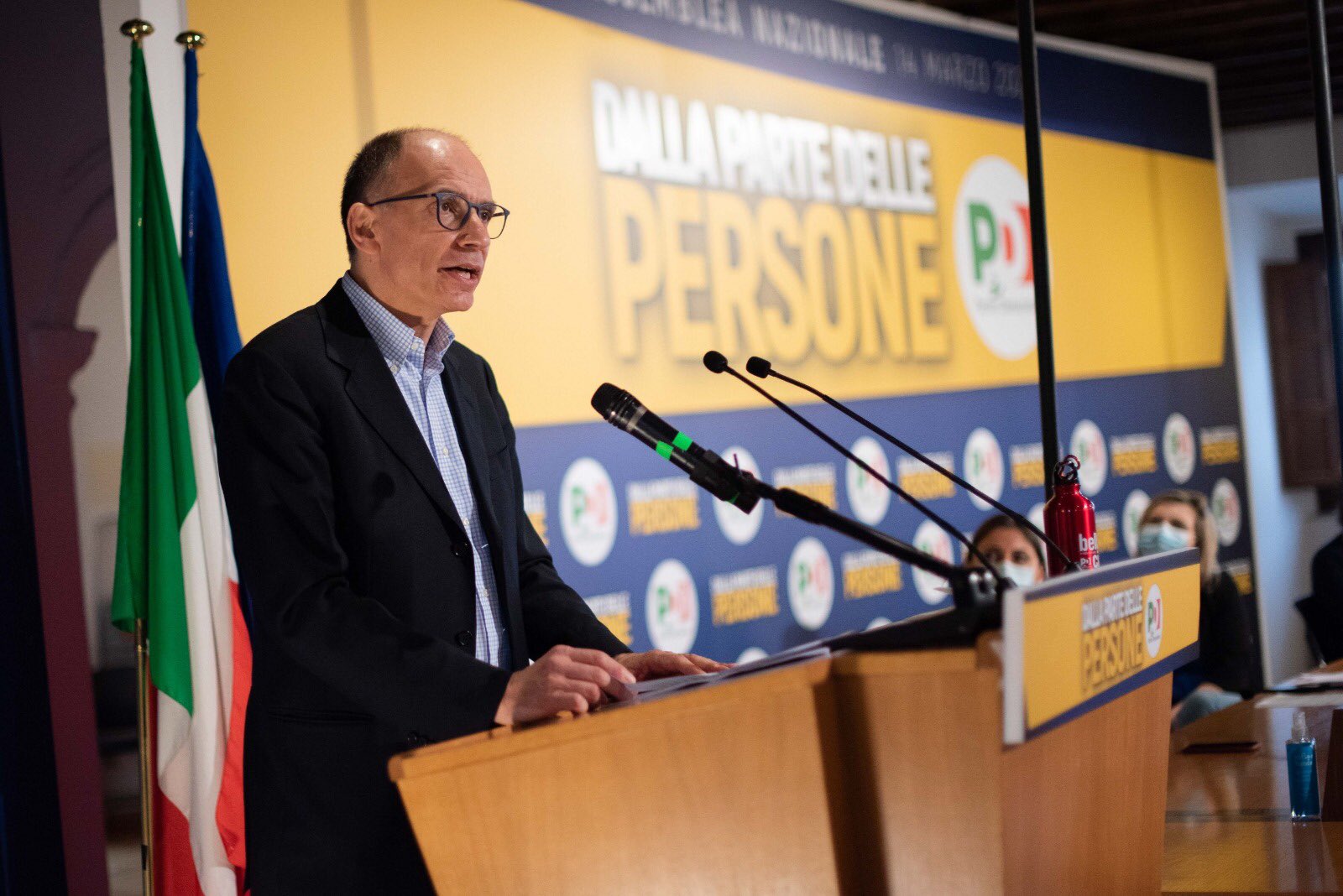The academic and politician has just been elected to lead Italy’s Democratic Party. Here’s why his international profile makes him fit for the times
860 favourable votes, 2 against and 4 abstained. Enrico Letta, former prime minister and founding member of Italy’s centre-left Democratic Party (PD) just came back from his Parisian academic post to lead it. He was practically consecrated, as the numbers state, despite being the only candidate to “run” for the role which was, until last week, Nicola Zingaretti’s.
The latter threw in the towel last week after two years at the helm of PD, denouncing the constant infighting, backstabbing and friction between its various internal factions. The pressure had been mounting on him over the last months due to his lack of dynamism and difficulties in adjusting to Mario Draghi’s government, born in February and supported by PD.
Mr Letta’s confirmation is rather irregular by his party’s standards, but then again, these are not regular times. Mr Draghi was asked by President Sergio Mattarella to take the helm of a struggling country, stuck between the raging pandemic and the economic hardship that has been around for much longer.
The former ECB leader crashed into a somewhat dysfunctional political landscape. Nearly every party jumped into his bandwagon, all had to accept compromises, and a few – including PD – suffered heavy blows. Mr Letta’s election is a response to these ground-shattering changes, as his personal profile holds the answers to them.
The 54-year-old entered politics dabbled in politics since high school. He held several ministerial roles, co-founded the Democratic Party in 2007 and became its Deputy Secretary in 2009. Following the inconclusive 2013 Italian elections, Mr Letta was tasked by President Giorgio Napolitano to build a grand coalition government, which he headed for ten months before being challenged by – and losing to – Matteo Renzi, the upstart PD leader at the time.
When Mr Renzi became prime minister, Mr Letta – an academic by trade and fluent French speaker – retired from politics and accepted the position of Dean of the School of International Affairs at Sciences Po in Paris. During his tenure, the School rose from thirteenth position to second in the QS University Ranking, just short of Harvard.
Perhaps most importantly, he developed and nurtured a global network of high-profile figures whom he would invite to hold talks for his students. The nametags include Ngozi Okonjo-Iweala, new head of the WTO; Bill Burns, Joe Biden’s pick for the top post at the CIA; Jens Stoltenberg, Secretary General at NATO.
Mr Letta has also been the president of the Jacques Delors Institute think tank, which specialises in fleshing out the shape of a united Europe, since 2016. In 2017 he founded the Institute’s Académie Notre Europe, an EU-centred political academy for the European youth. He also founded the Italia-ASEAN Association in 2015 to strengthen Italy’s geopolitical projection in South-Eastern Asia.
The newly consecrated leader of PD, one might say, is a pick fit for the times, what with the EU’s push for deeper integration – heralded by Mr Draghi – and Mr Biden’s return to multilateral tables. A fervent Europeanist and internationally well-connected authoritative figure, who can also get his hands dirty in the pen of Italian politics.
One could argue that Mr Letta is exactly what the ailing PD needs to remain relevant in this shifting landscape. An Italian populist PM has been replaced by a “technician” PM, who in turn placed more technicians in key ministries. As far as Italian political leaders go these days, the new PD leader is also a technician, as opposed to politicians by profession who lack the “technical” skills to add to the public dialogue.
Mr Letta might also be good news for Italy’s standing with its European counterparts. Jean-Pierre Darnis, who teaches at Université Côte d’Azur and is a scientific counsellor at the Italian Institute for International Affairs, wrote on Formiche.net that Clément Beaune, undersecretary of European Affairs and protégé of Emmanuel Macron, studied at SciencesPo.
Mr Beaune’s recent visit to Rome hints at Paris’ interest to revamp the Franco-Italian relationship, a potential game changer in the EU’s internal balances. After a couple tense years, the two capitals are reconnecting: Mr Macron and Mr Draghi converge over several issues, and Mr Letta is poised to become a key character in this new and improved dialogue.








